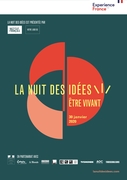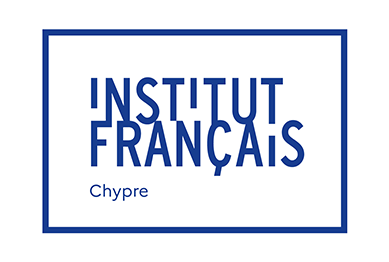Στο πλαίσιο της Νύχτας Ιδεών, το Γαλλικό Ινστιτούτο Κύπρου, σε συνεργασία με το Cyprus Institute, σας προσκαλούν στη διάλεξη στα αγγλικά του Dr Kamil Erguler Associate Research Scientist Climate & Atmosphere Research Center, The Cyprus Institute : Mathematics of climate, mosquitoes, and disease.
Πέμπτη 30 Ιανουαρίου 2020 - 7μμ - Γαλλικό Ινστιτούτο Κύπρου
Dr Erguler was trained in Molecular Biology and Genetics at Middle East Technical University, Ankara, and at the University of California, Berkeley. He received an MRes degree in Biochemical Research, an MSc degree in Bioinformatics and Theoretical Systems Biology, and a PhD for his work on the mathematical modelling and dynamics of biochemical systems from Imperial College London. His main research interests are dynamical modelling and analysis of biological systems, stochastic non-linear dynamics and chaos, parameter inference, model selection, sensitivity analysis and data visualisation. In his current position, he is working on modelling vector-borne diseases and assessing the impact of climate on global disease burden. He has published 15 papers and he has a Web of Science h-index of 10. He has delivered invited speeches on several national and international organisations.
Abstract: Vectors are organisms that transmit infectious disease agents from one host to another. Common vectors include mosquitoes, flies, sand flies, and ticks. It is estimated that mosquitoes are responsible from the deaths of about three quarters of a million people annually. In the northern hemisphere, chikungunya, dengue, and Zika are the three fastest expanding vector-borne diseases. Climate and land use change, and other human activities such as global trade and transport, give rise to changes and uncertainties regarding the habitats and distribution ranges of vectors and vector-borne pathogens. Understanding the dynamics and environmental dependencies of vectors and the pathogens transmitted by them is vital for planning effective management strategies, minimising health impacts of future disease outbreaks, and reducing the unintended environmental impact of vector control. As the Climate Impacts on Vector-Borne Disease Research Group, we are involved with a range of activities pertaining risk assessment, aversion, public engagement, and policy advisory. We study environmental dependency of vectors, assess global and regional habitat suitability and disease transmission risk, develop computational tools for modelling and risk assessment, contribute to vector surveillance and monitoring, and develop innovative technologies for vector control.

The Night of ideas will take place on January 30th 2020, and will focus on the theme : ‘Being alive”. Guests from diverse backgrounds - intellectuals, researchers, artists - will gather to discuss the theme all across the five continents.
The goal of the Night of ideas ('La Nuit des idées') is to celebrate the stream of ideas between countries, cultures, topics and generations. Every year, the Night of ideas gives the opportunity to discover the latest discoveries in knowledge and arts, to listen to the ones who contribute to bring more ideas to their field, and to take part in the discussion about the main issues of our times.
Being alive: at the heart of the Nuit des Idées 2020 is the question of ecological balance and humanity’s relationship with the world and other species. It invites discussion around the questions raised by scientific research, technological changes at the intersection of humans and machine, as well as changes to living things. The phrase can be understood as a command, a call to awareness, action and commitment. What is being alive ? What is our place in the living world? How does "Being Alive" impose us to take action? These will be the questions at the heart of the Night of Ideas.
